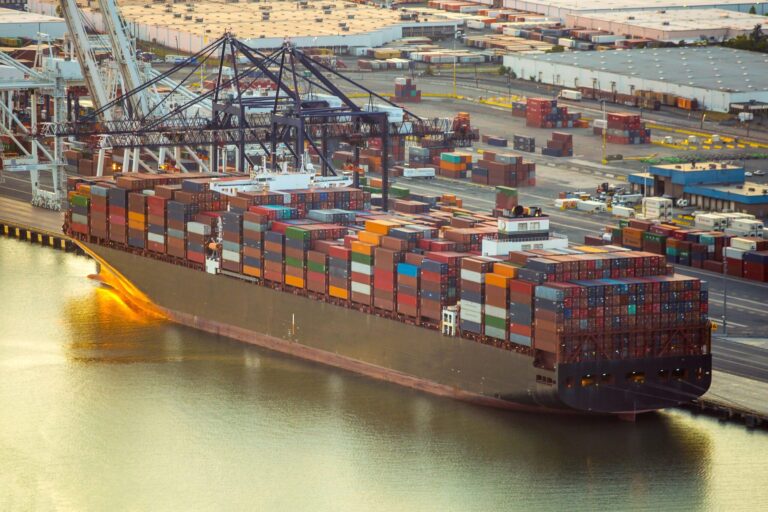The debate over a proposed carbon tax on transportation has reached a fever pitch, as stakeholders across the political and economic spectrum weigh in on the potential impacts.Advocates argue the measure is essential to reduce greenhouse gas emissions and combat climate change, while opponents warn of increased costs for consumers and disruptions to the transport sector. With lawmakers poised to make key decisions, the controversy highlights the challenge of balancing environmental goals with economic realities.
Table of Contents
- Debate Erupts on Economic Impact of Carbon Tax on Transportation
- Environmental Advocates Emphasize Urgency of Emission Reductions
- Industry Leaders Warn of Increased Costs and Supply Chain Disruptions
- Policy Experts Propose Balanced Approaches to Minimize Public Burden
- Key Takeaways
Debate Erupts on Economic Impact of Carbon Tax on Transportation
Economic analysts and industry stakeholders remain sharply divided over the proposed carbon tax on transportation. Proponents argue the tax incentivizes a shift toward greener alternatives,aiming to reduce carbon emissions that contribute to climate change. They highlight potential benefits such as:
- Reducing dependence on fossil fuels, which aligns with international environmental commitments.
- Encouraging innovation and investment in electric and hydrogen-powered vehicles.
- Generating revenue that can be reinvested in enduring infrastructure and public transit improvements.
However, critics warn that the tax could disproportionately impact consumers and businesses reliant on transportation, leading to increased costs across supply chains. The transportation sector’s response time and capacity to adapt to higher operational expenses remain uncertain, raising concerns about:
- Increased prices for goods and services, perhaps fueling inflation.
- Job losses in logistics and trucking industries vulnerable to rising fuel costs.
- Economic strain on rural and low-income communities where alternative transportation options are limited.
Environmental Advocates Emphasize Urgency of Emission Reductions
Environmental advocates are sounding the alarm as the transportation sector continues to be one of the largest contributors to greenhouse gas emissions in the U.S., accounting for about one-third of the country’s total emissions. They emphasize that urgent action is critical to align with national climate objectives, including achieving net-zero emissions by 2050 and reducing emissions 50-52% below 2005 levels by 2030. Activists argue that without swift and extensive policies such as the proposed carbon tax, efforts to curb climate change will fall short amid mounting scientific warnings and increasing climate events.
Campaigners highlight several key points in support of immediate emission reduction measures:
- Accelerating investment in clean transportation technologies to replace fossil fuel-dependent vehicles and infrastructure
- Encouraging behavioral shifts such as increased public transit use and electrification of freight and shipping
- Leveraging regulatory pressure to hold industries accountable for their carbon footprints and incentivize sustainable alternatives
- Ensuring that climate policies are equitable and do not disproportionately impact vulnerable communities
With global regulators considering similar carbon charges for the shipping industry, environmental groups insist that the transportation carbon tax is not just a policy proposal, but a necessary step in combating the climate crisis at a pivotal moment.
Industry Leaders Warn of Increased Costs and Supply Chain Disruptions
Several prominent figures from the transportation and logistics sectors have voiced serious concerns about the economic ripple effects anticipated from the proposed carbon tax. Industry leaders argue that the levy would substantially elevate operational expenses,potentially resulting in higher consumer prices and constricted profit margins for businesses operating in an already delicate market environment. They emphasize that these additional costs could strain supply chains by increasing fuel prices and transportation fees, ultimately disrupting the timely delivery of goods across various sectors. The warning comes at a critical time as global supply chains are still recovering from pandemic-related setbacks and geopolitical tensions.
The apprehensions are underscored by a consensus on several key points, including:
- Escalated freight costs leading to increased prices for raw materials and finished products.
- Potential delays as companies struggle to adapt to new regulatory frameworks.
- Investment hesitation in infrastructure and innovation due to uncertain financial impacts.
Industry representatives further caution that without targeted support or phased implementation, the tax could exacerbate existing vulnerabilities in the supply chain network, affecting everything from manufacturing output to consumer access. The call for stakeholder engagement and strategic mitigation measures is growing louder as the debate continues to unfold.
Policy Experts Propose Balanced Approaches to Minimize Public Burden
Amid growing concerns about the economic impact of the proposed carbon tax on transportation, policy experts emphasize the need for strategies that ease the financial strain on households and small businesses.By integrating targeted subsidies, tiered tax rates, and exemptions for vulnerable sectors, experts argue the policy can balance environmental goals with economic realities. Key recommendations include:
- Implementing rebate programs for low-income families to offset increased fuel costs.
- Phasing in the tax gradually, allowing businesses time to adapt and invest in cleaner alternatives.
- Exempting essential services such as emergency response and public transit to maintain community accessibility.
Experts also advocate for increased clarity and public engagement to build trust and ensure the policy’s long-term effectiveness. They stress that coupling the tax with reinvestment in sustainable infrastructure and incentives for green technology can generate broad societal benefits while minimizing hardship. This multi-faceted approach seeks to:
- Encourage behavioral change without triggering meaningful economic disruption.
- Promote equitable burden-sharing across different income groups and industries.
- Enhance the resilience of transportation networks by supporting innovation and modernization.
Key Takeaways
As the debate over the proposed carbon tax on transportation continues to intensify, stakeholders from across the political and economic spectrum remain deeply divided. With environmental advocates pushing for urgent action to reduce emissions and industry leaders warning of potential economic repercussions, the coming weeks will be critical in shaping the policy’s future. Ultimately, the decision will hinge on balancing the urgent need for sustainable solutions with concerns about affordability and economic impact, signaling a pivotal moment in the nation’s approach to climate change.

